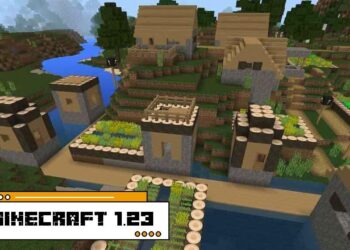It seems like the video game industry has been booming in the past couple of years and the number of people playing video games is rising. We’ve seen improvements in graphics, integration, software, realism, and online play, making the video game industry one of the fastest-advancing industries on the planet.
Therefore, it shouldn’t surprise us that the video game industry has been growing at around 14% and it is expected to reach close to $600 billion industry value by 2030.
However, we are not seeing the same level of advancement across all video game types. For example, the horse racing video game niche has been left in the dust, with no new video game concepts that push the limits of technology.
If you see horse racing video games throughout the past decade, not much has been changed apart from having slightly better graphics, but far off from triple-A titles.
So, why no developing company is interested in horse racing video games, and what will the future of this niche look like?
Let’s find out.
History of Horse Racing Video Games
We’ve all heard of Koei’s G1 Jockey series and Tecmo’s Gallop Racer series, but virtual horse racing didn’t start there. For instance, did you know the Commodore 64 included a horse-racing game?
No? Now is your chance to learn more about this often-overlooked niche game genre.
Derby Day was one of the first horse racing video games ever created.
This game, according to the internet, did not exist. Or, at the very least, no one remembers it exists. But how many copies did it sell? Probably more than it should have, owing to the popularity of the ZX Spectrum and C64 in Europe at the time.
The first chapter of the horse racing video game is G1 Jockey.
G1 Jockey, along with Dynasty Warriors, was probably one of the titles that catapulted Japanese developer Koei into the forefront. Of course, G1 Jockey was not as successful as DW, but odds are that if you go into any store that sells ‘pre-loved’ video games, you’ll find at least one copy of a G1 Jockey game in the cheap bin.
The G1 Jockey’s career mode, which includes horse breeding and horse training, distinguishes it as a full-fledged console game.
Gallop Racer is the next advancement in horse racing video games.
While Koei’s G1 Jockey series is the more well-known of the two major horse-racing simulators in the West, Gallop Racer is no afterthought, and in fact predates the G1 series by a couple of years, with the first game in the series being released in arcades in 1996.
Champion Jockey was a combination of Gallop Racer and G1 Jockey.
After that, we’ve got the somewhat advanced Winning Post series, with no real global expansion, and that’s about it.
Why There Aren’t Many Horse Racing Video Games?
If you’re a gamer and a horse racing fan, you’re undoubtedly aware that there isn’t a decent enough game that authentically captures the excitement of horse racing as a sport.
Over the previous two decades, we’ve seen several attempts by game developers to build a horse racing-themed game, but most of the time the game has poor visuals isn’t realistic enough, or lacks appropriate horse-riding mechanics.
Now that we live in a world where video games are becoming increasingly popular, we have begun to ask why all horse racing video games are bad.
Let’s look at why developers are afraid to take on the true task of creating the ideal horse racing video game.
Lack of Interest
Even while horse racing predictions are popular among gamblers and the sport is popular across the world, it is not on the same level as other sports like basketball or soccer. Furthermore, horse racing as a sport does not appeal to the younger population, which is the group that plays video games.
Horse racing’s lack of appeal as a sport discourages game creators from investing more money in creating the ultimate game.
Difficult to Create
Another factor is that game makers have found it difficult to capture authentic horse racing physics. Creating a genuine horse racing game will need a lot more money to perfectly capture the action of these incredible beasts.
Although, we’ve seen RDR2 and the Witcher 3 that managed to recreate quite realistic horse movement. But this requires a lot of money, and it doesn’t make sense if the game doesn’t sell many copies. Even niche games like V Rising, which is a niche game with a small budget, have better horse graphics and abilities than most horse racing games.
So, this means that they don’t have the right incentive to create a realistic game.
Randomized Nature
Even though horses in the latest games come with unique traits, stats, and abilities, somehow all of these games have quite a randomized nature. In other words, you wouldn’t be able to predict which horse is going to win the race despite having a good bloodline, exceptional training, and good form.
This is quite the opposite of real-world betting, although real-world scenarios are also unpredictable, you can still form a profitable betting strategy only by observing the daily horse racing picks by TwinSpires.
The Future of Horse Racing Video Games
The future of horse racing games doesn’t look bright. The only way for the horse racing video game genre to survive is to incorporate additional elements and not only focus on horse racing.
After all, horse racing is exciting, but it doesn’t offer much entertainment for the players. It is the same stuff repeating with every race.
Therefore, we expect a shift of events where games will be based around stables, taking care of horses, managing breeding, and open worlds, with horse races as mini-games. We’ve seen this strategy work with the mobile game Rival Stars Horse Racing, which has more than 10M downloads on Android.

We might also see horse racing video games in the Metaverse, where people can actually own their digital horses and earn money through racing.
One thing is for sure, if something doesn’t change soon, the horse racing video game genre will die.



























































































